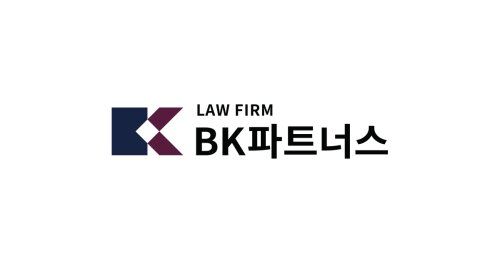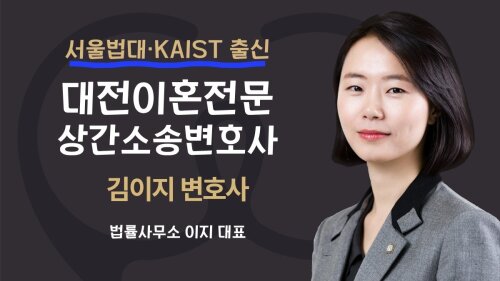Best Class Action Lawyers in Seo-gu
Share your needs with us, get contacted by law firms.
Free. Takes 2 min.
List of the best lawyers in Seo-gu, South Korea
About Class Action Law in Seo-gu, South Korea
Class action law in Seo-gu, South Korea, refers to legal proceedings where a group of individuals collectively brings a claim to court. This typically happens when many people experience similar damages or losses due to the actions or negligence of a company, institution, or other entity. In South Korea, the system is primarily guided by national law but can have local nuances based on the district’s courts and legal community practices. Seo-gu, being an urban district, often sees class actions related to consumer rights, financial disputes, product liability, and environmental issues.
Why You May Need a Lawyer
Class action lawsuits can be highly complex. You may need a lawyer if you are part of a large group affected by defective products, financial fraud, misleading advertisements, or if you experience harm from corporate actions as part of a community. Lawyers ensure your rights are protected, help organize the affected group, gather necessary evidence, navigate procedural requirements, and represent the group’s interests in negotiations and court. Whether you are considering initiating a class action or have been invited to join one, legal advice is crucial to understanding your options and the potential outcomes.
Local Laws Overview
Class action procedures in Seo-gu operate under the national Civil Procedure Act and specific laws like the Securities-Related Class Action Act. Key points include:
- Only certain types of claims, such as those related to securities, consumer protection, and environmental issues, may qualify for class action status.
- A representative plaintiff or group must adequately represent the interests of all class members.
- The court will determine if the case meets the requirements for class action, including commonality of legal or factual issues among class members.
- Notification procedures are in place to inform potential class members of the action and their right to join or opt out.
- Judgments or settlements are generally binding on all members of the class unless they opt out.
- Seo-gu district courts follow these national procedures, but local legal counsel is valuable for understanding specific filing requirements and judicial tendencies in the area.
Frequently Asked Questions
What is a class action lawsuit?
A class action lawsuit is a legal claim brought by one or several people on behalf of a larger group who have suffered similar harm from the same source. The court’s decision generally applies to everyone in the affected class.
Can anyone start a class action in Seo-gu?
Not everyone can start a class action. The claim must involve issues shared among many people, and a representative or representatives must act for the group. The court decides if a case qualifies as a class action.
What types of cases qualify for class action in South Korea?
Common examples include securities fraud, consumer product defects, environmental harm, and unfair business practices. There are rules around which claims can be grouped in a class action.
Do I have to pay to join a class action?
Usually, class action attorneys work on a contingency fee basis, meaning they only get paid if the group wins the case or reaches a settlement. Individual members typically do not pay upfront fees.
How do I know if I am part of a class action?
Potential class members are notified via public announcements, letters, or other methods approved by the court. If you are contacted or see an announcement, review the details carefully and seek legal advice if needed.
Can I opt out of a class action?
Yes, individuals usually have the right to opt out of a class action and pursue separate claims, but must do so before court-set deadlines.
What happens if the class wins the lawsuit?
If the class wins, damages are awarded or a settlement is reached. Compensation is then distributed among class members as directed by the court or the settlement terms.
How long do class action cases take in Seo-gu?
Class actions can take several months to years, depending on case complexity, the number of class members, and appeals. Legal counsel can provide more precise timelines based on local court experiences.
Can foreign nationals join a class action in Seo-gu?
In many situations, foreign nationals affected in the same way as locals can join a class action, provided their claims arise under South Korean law.
What should I do if I am invited to join a class action?
Review the invitation carefully, understand the case, and contact a lawyer to discuss your situation. Joining a class action may affect your rights to file separate claims later.
Additional Resources
If you need more information or assistance, consider these resources:
- Seo-gu District Court - for local case filings and information
- Korean Bar Association - for finding qualified lawyers experienced in class action suits
- Ministry of Justice - for updates on national regulations governing class actions
- Korea Consumer Agency - for consumer-related group claims guidance and mediation
- Legal Aid Foundation - for free or low-cost consultations if you qualify
Next Steps
If you believe you have grounds for a class action claim or have been invited to join one:
- Document your situation thoroughly, including all communications and evidence of harm or loss.
- Seek a consultation with a lawyer experienced in class action law in Seo-gu.
- Discuss your eligibility, potential participation, and what you can expect with your lawyer.
- Follow court notifications and deadlines carefully if you decide to participate.
- If you are unsure where to start, consider contacting local legal organizations or the Korean Bar Association for referral to a qualified attorney.
Taking timely and informed action is critical to protect your rights and maximize your chances for compensation or relief in a class action matter in Seo-gu, South Korea.
Lawzana helps you find the best lawyers and law firms in Seo-gu through a curated and pre-screened list of qualified legal professionals. Our platform offers rankings and detailed profiles of attorneys and law firms, allowing you to compare based on practice areas, including Class Action, experience, and client feedback.
Each profile includes a description of the firm's areas of practice, client reviews, team members and partners, year of establishment, spoken languages, office locations, contact information, social media presence, and any published articles or resources. Most firms on our platform speak English and are experienced in both local and international legal matters.
Get a quote from top-rated law firms in Seo-gu, South Korea — quickly, securely, and without unnecessary hassle.
Disclaimer:
The information provided on this page is for general informational purposes only and does not constitute legal advice. While we strive to ensure the accuracy and relevance of the content, legal information may change over time, and interpretations of the law can vary. You should always consult with a qualified legal professional for advice specific to your situation.
We disclaim all liability for actions taken or not taken based on the content of this page. If you believe any information is incorrect or outdated, please contact us, and we will review and update it where appropriate.









